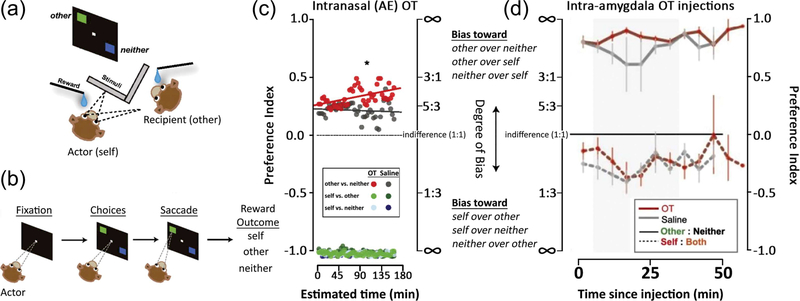FIGURE 3.
Oxytocin, both inhaled and injected intracranially, increases pro-social donations (adapted with permission from Chang et al., 2012, 2015). (a) Two rhesus monkeys, the actor and recipient, were seated adjacent to each other. (b) The actor monkey was able to choose, by making a saccade, between the following pairwise options of juice delivery: (i) to the recipient or to neither monkey;(ii) to the actor (self) or to the recipient (other); and (iii) or to the actor (self) or to neither. (c) Intranasal (AE) OT increased pro-social donations of juice (other vs. neither trials) to the recipient, particularly in the latter half of a session (Chang et al., 2012). (d) Intra-amygdala injections of OT (red lines) similarly increased pro-social donations of juice to the recipient. This was observed during a 30-min time window beginning 5 min after the completion of each injection (shaded gray area) (Chang et al., 2015). Preference index between options A or B was calculated by (A−B)/ (A + B), and ranged between −1 and 1 (where 1 is the value of the index if the monkey always chooses the “pro-social” option, and −1 is the value of the index if the monkey always chooses the “anti-social” option)

